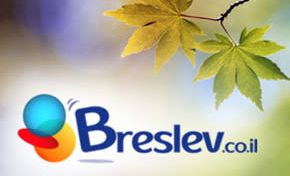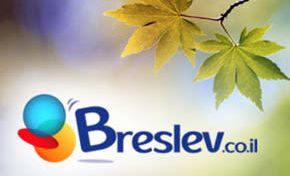
The Golden Path
Without a qualified and righteous spiritual guide, a person might learn Torah for a lifetime, yet make tragic errors in spiritual navigation and never...

Life is a labyrinth of utter chaos in the absence of Torah, where confused people live lives of folly and fantasy. Look around you: Neighbor A is on a mad chase after more money, Neighbor B thirsts for fame and recognition, Neighbor C never stops trying to allure Neighbor D’s wife, Neighbor E can’t stand Neighbor F, who’s jealous of neighbor G’s new car.
Without Torah, the world is a heartless, unbearable hothouse of strife, hatred, competition, slander, theft, revenge, cruelty, adultery, and injustice.
The world can be lovely, enjoyable, and tranquil. A life of Torah is like a smooth ride in a new car when the owner fulfills all the manufacturer’s instructions as listed in the owner’s manual. The Torah – the Creator’s manual for our bodily and spiritual welfare – shows us how to be happy, how to respect our fellow man, and how to raise our children. A true Torah observer deals honestly, helps others, and rejoices when they’re happy. Such individuals wouldn’t dream of touching something that didn’t belong to them. They live worthy and fulfilled lives, and make the world a better place.
In short, the Torah is the venerable golden path to a good and meaningful life.
Unfortunately, if a person learns Torah without striving for emuna, then the power of Torah becomes lethal and damaging. For example, without emuna, heaven forbid, a simple thief can utilize the wisdom of Torah to become a dangerous, sophisticated thief. Without the guidance of the generation’s tzaddikim – our righteous spiritual guides – one cannot hope to attain truth and emuna. As such, many can be "religious", yet remain far from truth and from true emuna. Rather than appealing to Hashem for all their needs, they put their hopes in the hands of futile flesh and blood, become easily worried and upset, and quarrel with others.
A Man of Spirit
An unbroken chain of righteous tzaddikim extends from Moshe (Moses) to this very generation. The tzaddikim help us understand the Torah, its commandments, and our individual purpose in life. Each of us must search for a genuine tzaddik of true spiritual stature that can help us find the way to applying the Torah to our daily lives. A random righteous person that hasn’t been the understudy of a righteous spiritual guide before him will not suffice.
The expert spiritual guide – whom the Torah calls "A man of spirit" (Numbers 27:18), knows how to apply the laws of Torah for the benefit of each individual’s spirit. For example, a qualified rabbinical authority who is also "a man of spirit" might permit a certain action under one circumstance, yet completely forbid it under another circumstance. He sees the unique needs of each individual, just as a shepherd knows the needs of each lamb and ewe.
Such a rabbi, tzaddik, and spiritual guide knows how to awaken a person from his or her spiritual slumber, strengthen souls, and thereby show them the way to Hashem.
Without a qualified and righteous spiritual guide, a person might learn Torah for a lifetime, yet make tragic errors in spiritual navigation and never attain his or her tikkun. Two groups of people have difficulty finding their way in the world – those without Torah altogether, and those without a spiritual guide. "Blessed be He who separates us from the mistaken" (Kedusha D’sidra, morning liturgy); every day, we ask Hashem to save us from both groups.
Rebbe Nachman of Breslev writes (Likutei Moharan I: 123): "The foundation and most important principle – one’s connection to the tzaddik of the generation, to accept his teachings about everything, big or small, without straying to the right or left, heaven forbid, as our sages instructed (Sifri, parshas Shoftim): ‘Even if you’re told that right is left…’, that one must cast aside his own wisdom, logic, and opinion as if there is no brainpower other than the what he receives from the tzaddik of the generation, and as long as one depends on one’s intellect, he is in a state of imperfection, not fully connected to the tzaddik."
Rebbe Nachman also writes (Likutei Moharan II: 8): "One must search and pray very hard for a true spiritual guide, and insistently request from Hashem that he merit to find to a true leader, so he can attain true and complete emuna, for when one connects – heaven forbid – to a false leader, one is exposed to false believes…therefore one must search and pray for a true leader to connect to."
Caution!
One can find a true spiritual guide and leader only by way of prayer, for most of us lack the tools to discern between an authentic tzaddik and a good imitation; further, we may find a tzaddik that may not be the right spiritual guide for us, or an individual of insufficient spiritual stature to guide us on the true path of emuna and tikkun. We must therefore exercise supreme caution in avoiding the pitfalls of criticizing a group or its leader, who doesn’t seem to be the right leader for us. Why? Belittling a fellow Jew – let alone an entire group or its leader – is a severe transgression of Torah law.
Those who rely on their own intellectual prowess to search for a proper spiritual guide are prone to mistakes. Therefore, we must pray tenaciously to find the true tzaddik that can show us the way to genuine emuna.
To be continued…












Tell us what you think!
Thank you for your comment!
It will be published after approval by the Editor.